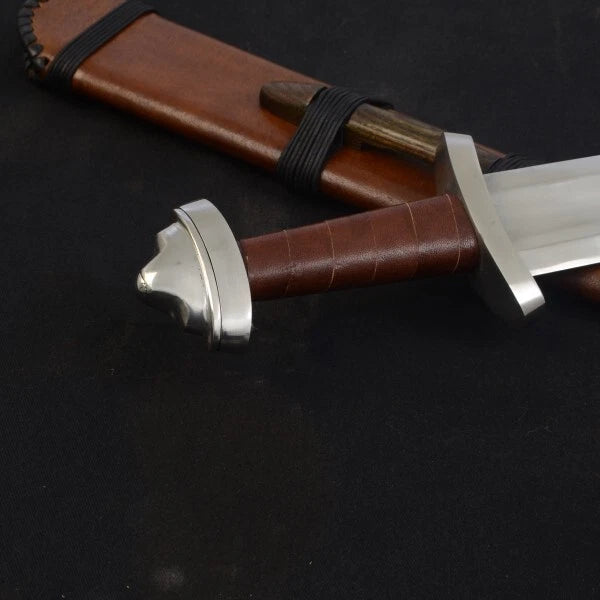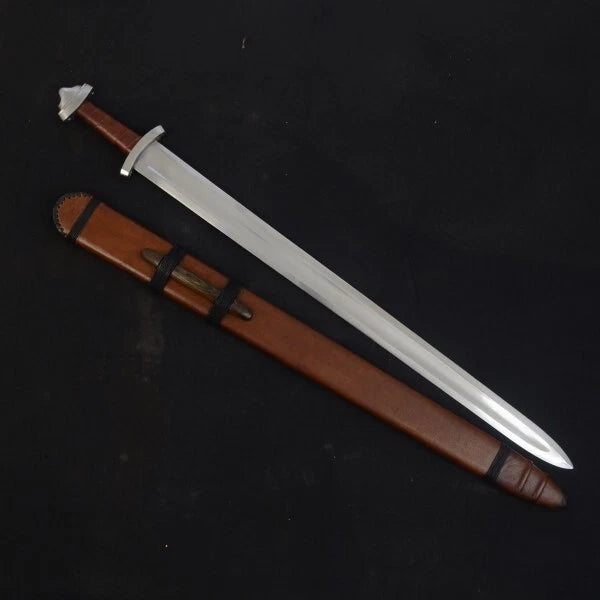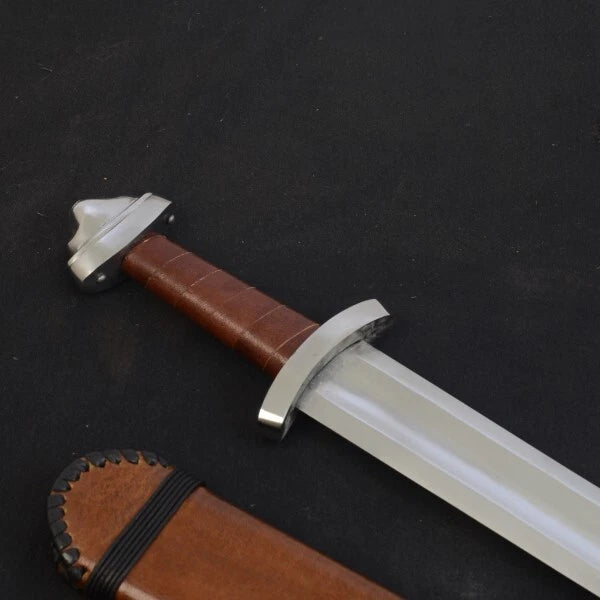STA Lifestyle
11th Century Viking Raider Sword – Deepeeka
11th Century Viking Raider Sword – Deepeeka
Couldn't load pickup availability
The 11th-century Viking raider sword represents the later evolution of the Viking Age weaponry, incorporating both traditional Scandinavian design elements and influences from continental Europe.
General Overview
-
Time Period: Circa 1000–1100 AD
-
Region: Scandinavia (modern-day Norway, Sweden, Denmark) and areas affected by Viking raids (British Isles, Ireland, Francia, Rus')
-
Usage: A status symbol and a deadly battlefield weapon, carried by elite warriors and raiders.
Manufacturing & Craftsmanship
-
By the 11th century, many Viking swords were imported from or inspired by Frankish or German smiths, such as those marked "Ulfberht", a signature of high-quality swords made in the Rhineland.
-
Pattern-welding declined in favor of higher quality crucible steel when available.
🔍 Iconography and Cultural Role
-
Viking swords were prestige weapons, often buried with their owners.
-
In Norse sagas, swords were named and imbued with mythical importance (e.g., Gram, Skofnung).
-
Raiding parties and elites prized their swords both as functional weapons and as social markers.
🧭 Historical Context
-
During the 11th century, Viking raiding was declining, and many Norsemen were settling and integrating into European societies (e.g., Normans in France, Varangians in Byzantium).
-
Swords from this period reflect a fusion of Norse and European medieval martial cultures.
| Overall Length | 32 7/8" |
| Blade Length | 26 7/8" |
| Weight | 2 lbs 15.5 oz |
| Edge | Unsharpened |
| Width | 50.5 mm |
| Thickness | 5 mm - 4.5 mm |
| Pommel | Peened |
| P.O.B. | 8 3/4" |
| Grip Length | 4" |
| Blade | [C60 High Carbon Steel] |
| Class | Battle Ready |
| Culture | Viking |
| Manufacturer | Deepeeka |
| Country of Origin | India |
Share





